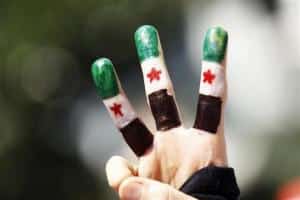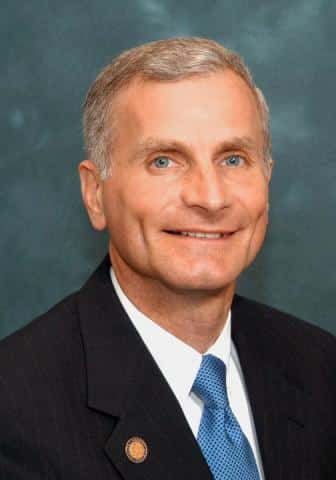
The revolution in Syria, if it will happen at all, needs far more than the overthrow of a despotic family. It needs the casting off of a mentality that many of today’s “revolutionaries” still cling to. We’ll explain in a moment.
But first, some background. The so-called “Arab Spring” in Syria erupted in early 2011, led by civilian protestors demanding an end to the autocratic rule of the Bashar al-Assad regime. Under the leadership of al-Assad and his brother, the Syrian government attempted to crush any rebellion through military force.
For daring to rebel against dictatorship, hundreds of Syrians have been captured as political prisoners, never to be seen again. Some have even suffered violent deaths at the hands of their own leaders. Yet many morally courageous revolutionaries refuse to be silenced, recognizing that democracy is more important than fear – even the fear of death.
On the surface, the reasons for rebellion are no secret. Unemployment, economic disenfranchisement and human rights violations are rife. Thanks to such repression, Hasan Ali Akleh drenched his body in gasoline and set himself on fire in protest in January 2011, sparking (as it did in Tunisia) a revolutionary uprising. The movement spread like wildfire with multiple demonstrations occurring across the country.
A ruthless government crackdown quickly followed, with artillery and tanks being deployed to various protest sites. Thousands have been murdered and basic necessities, such as water and electricity, have been cut off in an attempt to strangle the people’s ability to organize.
In early February 2012, world leaders lobbied the United Nations Security Council to approve a resolution condemning Assad’s assault on protestors and backing the Arab League’s call for his resignation. Russia and China vetoed the resolution, stalling any action at the U.N. The Syrian National Council, the largest opposition group, described the veto as “a license to kill with impunity.”
Perhaps feeling empowered by the unwillingness of the U.N. to take action, the Assad regime then launched the deadliest assault on rebels since the Arab Spring started. One day’s death toll stood at 200, with many more wounded.
None of this is to suggest that opposition groups are squeaky clean in their dealings with fellow citizens. “I personally support the opposition,” says a Syrian friend of the Moral Courage Project, “but whereas before, the emphasis was a lot more on nonviolent protest, those days are behind us. The most vocal opposition members are promising retribution.” Retribution can only mean a new dogma replacing the old one.
The resentments that have built up in Syria can be traced, in large part, to a religious minority (Shia Alawite Muslims) ruling over a religious majority (Sunni Muslims). Says our informant, “I know a lot of atheist and gay opposition members who long for a form of Sunni-supremacy.” A “former friend” of his remarked, “Democracy is the rule of the majority, and we’re the majority. Why shouldn’t we have power over them?” Observes our informant, “This will do nothing to assuage religious minorities who have stood by the president out of concern that a Sunni majority country would not be kind to them.”
Revolution requires moral courage, but revolts do not add up to a “revolution” in the transformative sense. For moral courage to be truly meaningful, it must aim to displace a power-hoarding system, not merely mimic it with power-hoarders of a different label. Indeed, our Syrian friend warns of one “hydra-head” replacing another, as has happened in Egypt so far.
We salute those Syrians who are putting their lives on the line to achieve dignity for the “other” as much as for themselves. They are genuine revolutionaries.

Raphael Wugalter is a young man with moral courage. To appreciate his story, you first need to hear another story.
A Canadian jury unanimously convicted businessman Mohammad Shafia, his second wife, Tooba Mohammad Yahay and their 21-year-old son, Hamad, of murder in January 2012. Sisters Zainab (19), Sahar (17), and Geeti (13), along with Mr. Shafia’s first wife, Rona Amir Mohammad, were found dead inside a car submerged in a canal. The victims of “honor killings,” all four women were murdered at the hands of their own family in a perverse plan to restore the family name.
Increasingly, citizens of open societies must grapple with their tolerance of retrograde cultural customs such as “family honor.” Fearful of being labeled a “bigot” or a “racist,” many people choose to remain silent, as social workers in this case did.
Having immigrated to Canada in 2007, the young Shafia sisters were like most teenagers. Zainab had fallen in love with a Pakistani man and wanted to marry him. Sahar posted pictures online wearing sassy clothes. Geeti was struggling in school. Their father saw this behavior as “shameful” and threatened to kill his daughters to preserve his reputation. Rona Mohammad, Mr. Shafia’s first wife, was the girls’ only advocate in an often tumultuous household.
The girls repeatedly tried to escape their dangerous situation, pleading for help. Zainab ran away to a shelter and Geeti asked social workers to intervene. Both efforts were fruitless as the girls were returned to their home. What government officials and social workers could not (or would not) understand is that Mr. Shafia’s threats, far from being a father’s frustrated outbursts, were in fact rooted in the ancient cultural practice of his homeland, Afghanistan. The custom of “family honor” calls men to cleanse the family of shame – usually by doing violence to one or more of the women in that family.
Chilling wiretapped conversations between Mr. Shafia and his second wife reveal just how intentional these murders were. At one point, Mr. Shafia reflects, “I say to myself, ‘You did well. Would they come back to life a hundred times, you should so the same again…’” Later he states, “May the devil defecate on their graves! This is what a daughter should be? Would a daughter be such a whore?”
Enter Rafael Wugalter, an ordinary Canadian with an extraordinary commitment to do more than stand by. Wugalter has launched a petition that urges the government to revise its child protection protocols. Moreover, he encourages teachers and neighbors to intervene when they hear of honor-based threats. As Wugalter explains, “If we value our freedom and equality, if we consider them to be cherished principles, then why aren’t we there for these women?”
To those who would retort that it is not his culture, Wugalter shoots back, “The origin or culture of a person should never determine what rights they have as human beings.”
But this point will only sink in if officials understand that honor murder is not akin to typical domestic violence. “In the case of honor killings,” Wugalter points out, “everything is pre-meditated. It’s not merely an outburst of passion or anger. Keeping families together in that kind of setting can harm children more – and, as we’ve seen, can be fatal.”
For those not sure why they should care, Wugalter has a message: “If you’ve been afforded freedom and a privileged life, then it’s your responsibility to stand up for those who want the same thing as you but are being coerced to live differently.” Rafael Wugalter is a model of moral courage in an era when multiculturalism intimidates too many.

At a time when U.S. politics have become increasingly partisan, there are few examples of politicians willing to cross party lines. Florida state senator Mike Fasano did just that when he voted against a bill, passed in Florida’s state legislature, in late 2011. As one of just two Republicans to vote against it, Representative Fasano defied his own party.
Openly disagreeing with those in your own community, as Fasano did, is a telling sign of moral courage. It is easy to disagree with the other side. After all, that means you fit in with your own community, ensuring social acceptance. But, going against the grain within your community requires personal strength because once you challenge group identity, you inevitably lose group approval.
The bill that Fasano voted against is significant. It will impact future elections. The legislation forces more stringent requirements for voters to register and reduces the time allowed for early voting. Florida Democrats argue that the proposal will result in suppressing the votes of college students, minorities, the elderly and former offenders. Florida Republicans defend the legislation, declaring that there is rampant voter fraud that needs to be controlled through new actions. Fasano deemed the bill “bad legislation,” stating later, “No one could give me an example of all this fraud they speak about…”
Traditionally, the affected population segments vote heavily for Democrats. In fact, these demographics have contributed greatly to the election of Democratic President Barack Obama. Critics argue that by creating barriers to voting, the Republican Party hopes to swing elections in their favor.
Despite the obvious benefit to his party, Mike Fasano did not feel he could support the bill while maintaining his integrity. “Florida has always been a state that has been open in having access to voting for legal residents.” He points out that, “this bill reduces that access.” By standing as an independent thinker, not part of the herd, Senator Mike Fasano demonstrated moral courage, putting the greater good above partisan gain.

